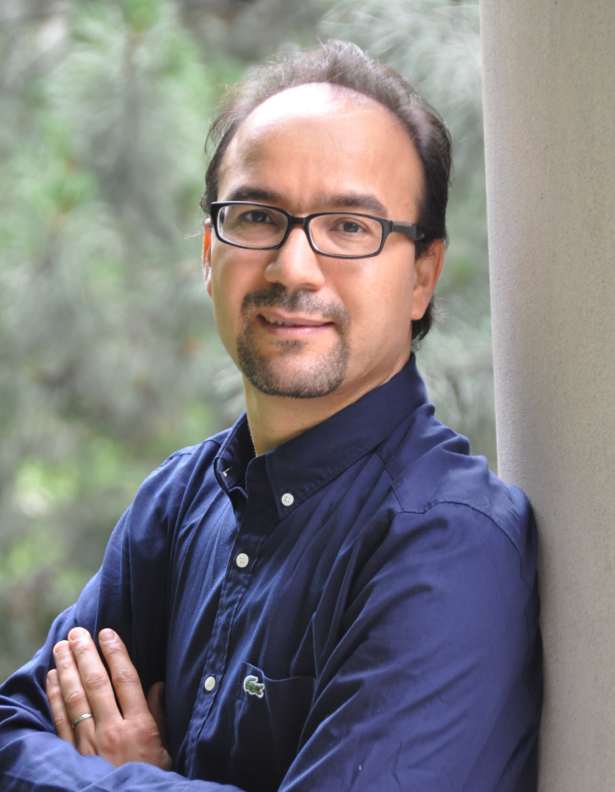Membre du Barreau de l’Ontario, le professeur Fathally est titulaire d’un doctorat, d’une maîtrise en droit (LL.M.) et d’un baccalauréat en droit (LL.L.) de l’Université d’Ottawa, ainsi que d’une maîtrise et d’un diplôme universitaire d’études juridiques de l’Université de Tunis. Spécialiste en droit comparé et en droit international humanitaire, ses recherches portent sur divers sujets juridiques complexes et sur des événements contemporains, favorisant l’analyse critique et le dialogue sur les relations entre le droit, la religion et les droits de la personne.
Grâce à ses recherches, son enseignement et sa profonde connaissance des enjeux juridiques et politiques liés à la politique étrangère canadienne et aux droits humains internationaux, le professeur Fathally est rapidement devenu un expert de renommée internationale. Il a reçu la prestigieuse bourse Van Calker de l’Institut suisse de droit comparé, la bourse Gerald A. Beaudoin de l’Université d’Ottawa, ainsi que plusieurs autres distinctions et subventions. Il agit également comme consultant expert auprès de plusieurs organisations internationales et intergouvernementales, notamment l’Organisation mondiale de la Santé, le World Justice Project et le programme Varieties of Democracy (Université d’Oslo).
Cofondateur de JuriGlobe en 2007, le professeur Fathally a supervisé le lancement du site web en 2009 et agit actuellement comme directeur exécutif et chercheur principal. Le site web JuriGlobe – Systèmes juridiques du monde (www.juriglobe.ca) – constitue un outil essentiel en droit comparé, décrivant les systèmes juridiques en vigueur dans le monde, les langues officielles utilisées dans les différentes juridictions et les principales conventions commerciales internationales en vigueur dans diverses régions. JuriGlobe est devenu un outil éducatif pour l’enseignement du droit comparé et international et une ressource clé pour de nombreuses institutions internationales. Il a également attiré l’attention de la communauté scientifique juridique, comme en témoignent les citations et commentaires dans plusieurs publications récentes, dont l’American Journal of Comparative Law, Notarius (revue scientifique de l’Union internationale du notariat) et le Journal de l’UNESCO.
En tant que professeur de droit comparé, et plus particulièrement des systèmes juridiques contemporains dominants, le professeur Fathally met l’accent sur l’importance du dialogue entre les cultures juridiques, en expliquant aux étudiants les différentes corrélations entre les grandes traditions juridiques du monde. Il favorise un enseignement interactif où les étudiants sont invités à poser des questions. Au sein de la Faculté de droit de l’Université d’Ottawa, qui offre des cours en droit civil et en common law en français et en anglais, il contribue à réduire les écarts entre les deux traditions juridiques canadiennes en proposant un cours sur le raisonnement civiliste destiné aux étudiants de common law. En reconnaissance de la qualité de son enseignement, il a reçu le prestigieux Prix d’excellence en enseignement de la capitale du Réseau d’Ottawa pour l’éducation (ROPE) en 2015, après avoir été finaliste pour ce prix en 2014. Dans la biographie présentée par le ROPE lors de la remise du Prix d’excellence en enseignement de la capitale au professeur Fathally, l'organisation l’a qualifié de « modèle de réussite pour les jeunes issus de l'immigration ».
Le professeur Fathally est souvent sollicité par les médias canadiens et internationaux pour son analyse des conflits armés au Moyen-Orient, des interactions entre le droit et la religion dans la résolution de ces conflits, des changements politiques dans certains pays arabes et de leurs répercussions sur les droits des femmes, ainsi que de nombreux autres sujets liés au monde arabo-musulman et aux implications juridiques de la politique étrangère canadienne. Fort de son expertise en droit comparé, il s’engage activement dans la sensibilisation du public sur ces enjeux. En 2013, avec un CV comptant des centaines d’apparitions médiatiques nationales et internationales, il a reçu le prix d’Excellence en relation avec les médias de l’Université d’Ottawa, un accomplissement impressionnant compte tenu de la réputation de l'Université d'Ottawa en tant que chef de file dans le domaine des relations avec les médias des universités canadiennes.Selon le comité de sélection, le professeur Fathally était « l'expert le plus populaire de l'université auprès du public canadien » et le comité a noté qu'« il est devenu un modèle d'excellence pour ses pairs ».Jabeur Fathally est devenu l'une des sources incontournables au Canada pour comprendre les spécificités du droit islamique et pour apporter au public canadien une connaissance des systèmes juridiques contemporains.
À la suite des changements politiques dans plusieurs pays arabes après le Printemps arabe de 2011, le professeur Fathally a collaboré avec le Centre de recherche et d’enseignement sur les droits de la personne (CREDP) de l’Université d’Ottawa pour organiser divers ateliers et conférences destinés à sensibiliser le public canadien aux défis posés par ces changements, notamment leur impact sur les droits des femmes. Le professeur Fathally a été l'un des premiers intellectuels canadiens à attirer l'attention sur les défis spécifiques que ces changements de politique posaient aux femmes arabes.Son article, « Les droits des femmes à l’aube du printemps arabe : de « ne pas oublier les femmes » au « Femmes : n’oubliez pas ! » a remporté en 2013 le prestigieux prix Paul-Pinchaud pour le meilleur article publié dans la revue Études internationales, décerné par l'Institut d'études internationales de l'Université Laval.
Le professeur Fathally supervise des thèses de maîtrise et de doctorat.
